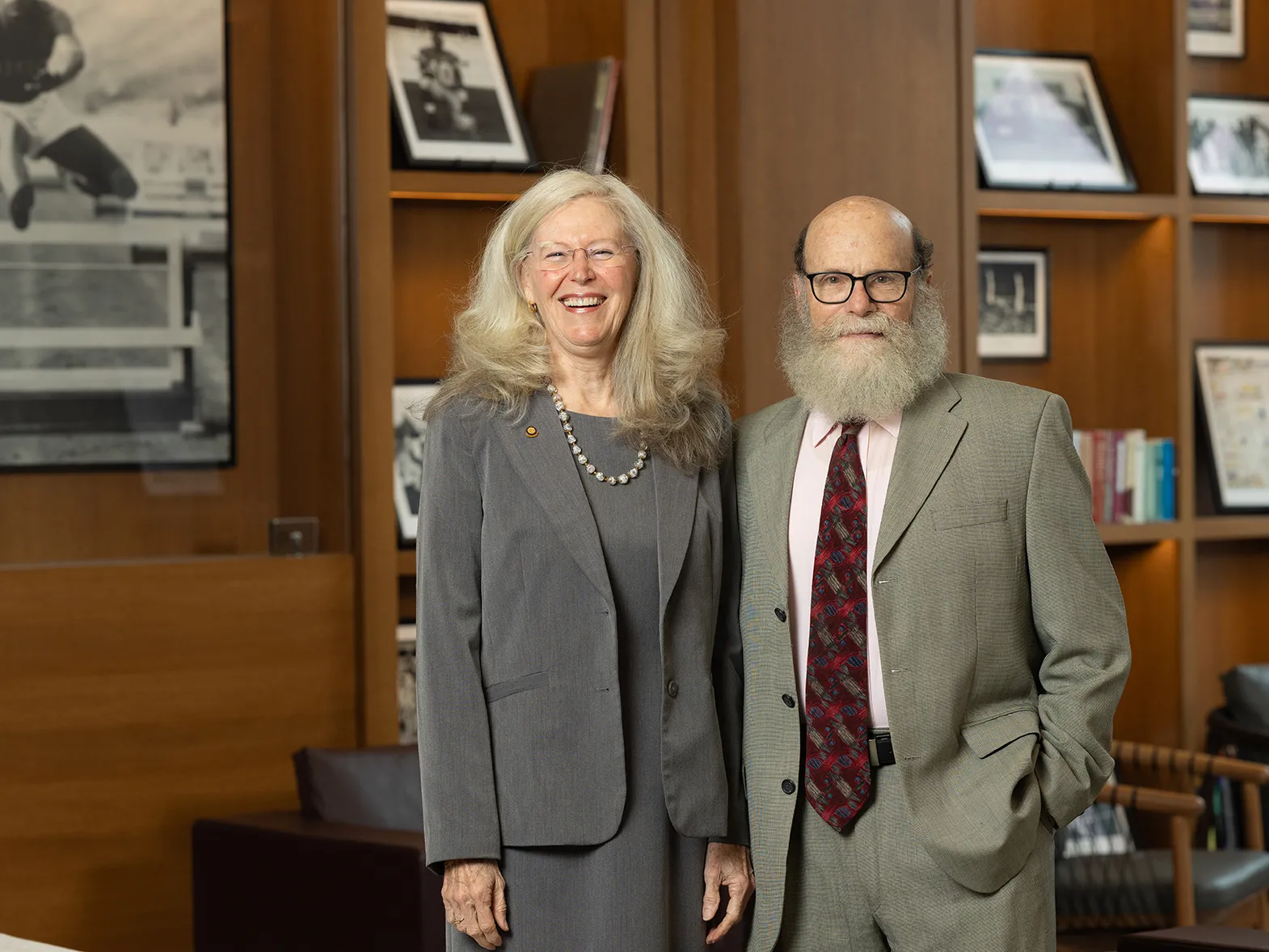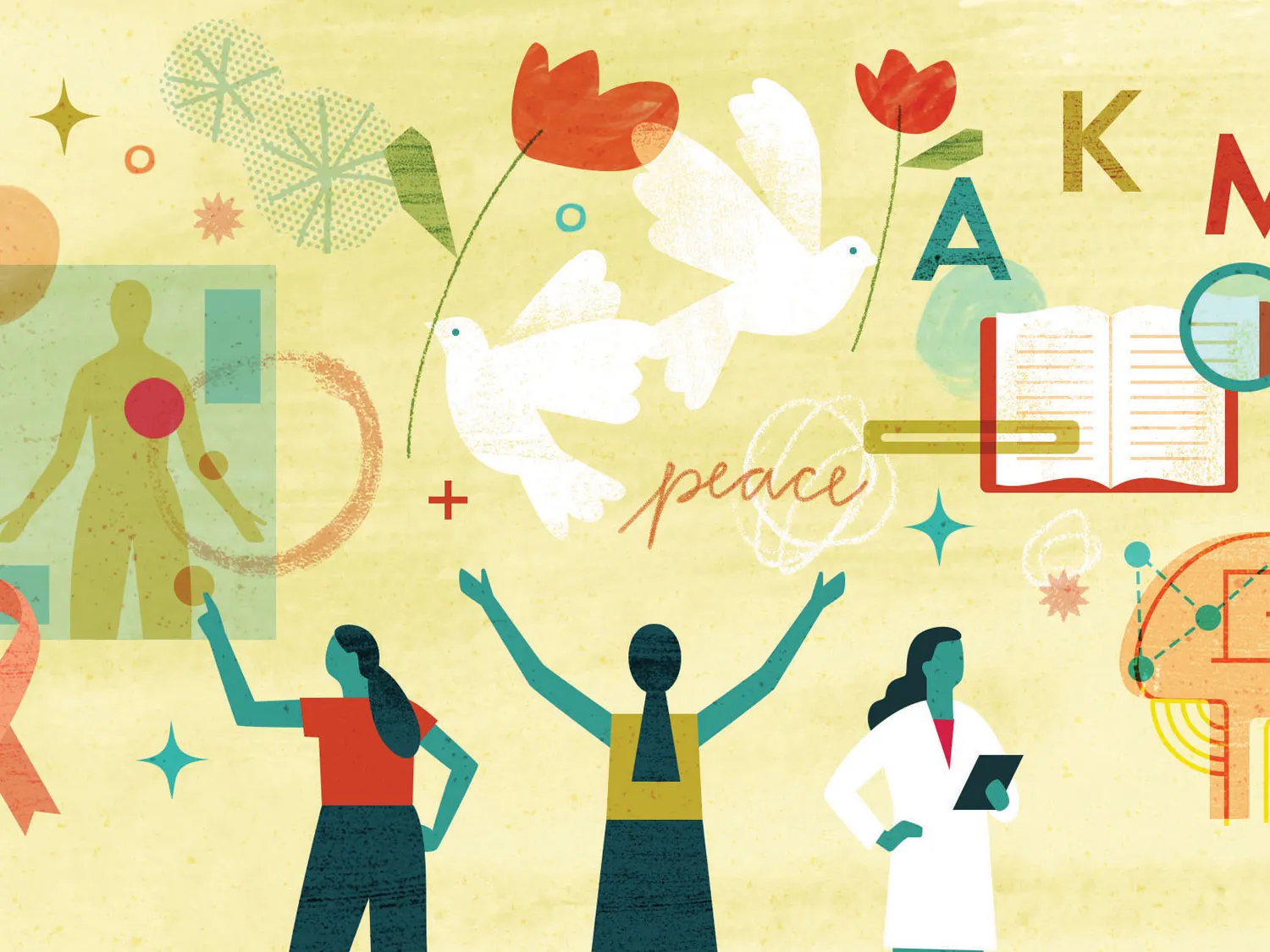Look for the helpers
When COVID-19 began touching so many lives in so many ways, these Ohio State alumni, staff and students placed themselves in service to those in need.
Lori Criss ’91, ’92 MSW
Director of the Ohio Department of Mental Health and Addiction Services
The Fred Rogers quote is ubiquitous now, but it is still so deeply comforting. “When I was a boy and I would see scary things in the news, my mother would say to me, ‘Look for the helpers. You will always find people who are helping.’” We did not have to look far to find Buckeyes — alumni, students, staff, faculty — who have focused their skills, their ingenuity and their generous hearts in service to those affected by the pandemic.
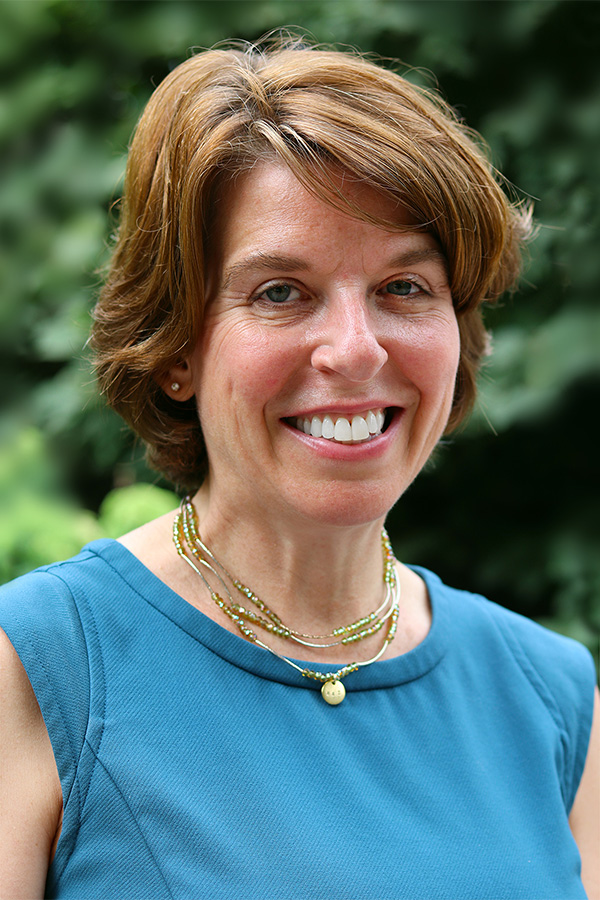
Much of the work we do is based on relationships, and COVID-19 has really forced us to think differently about what that means. How do you build a therapeutic alliance when you can’t be together? We’ve dedicated great effort to connect with people through technology, and it’s helping people continue or start treatment and enabling quick problem-solving with community partners. There are some people who are more vulnerable to the stress of this, and it’s our responsibility to see them and meet their needs. Still, none of us are exempt from the grief caused by this pandemic. Our job is to support the mental health of all Ohioans. The stress, fear and anxiety we’re all feeling is normal. It’s heartbreaking to watch what everyone is going through. At the same time, it’s inspiring to see how resilient people are. We didn’t realize how capable we all are of doing hard things. What gives me hope is how engaged everybody still is in solutions. There will be a better day. — As told to Todd Jones
Emlah Tubuo
Owner of Powell Pharmacy and assistant professor of pharmacy practice in the College of Pharmacy
I shut down my lobby March 15 because pharmacists are often the first line of exposure. We still do consultations, and I do a few deliveries each day and I love it.
There’s an independent living facility near us with seniors who get prescriptions here. We started delivering there first, then we donated masks. We’ve made hand sanitizers for first responders. I treat everyone like family because people need to feel supported. That’s why I created our pharmacy. I like to give people information, empower them.
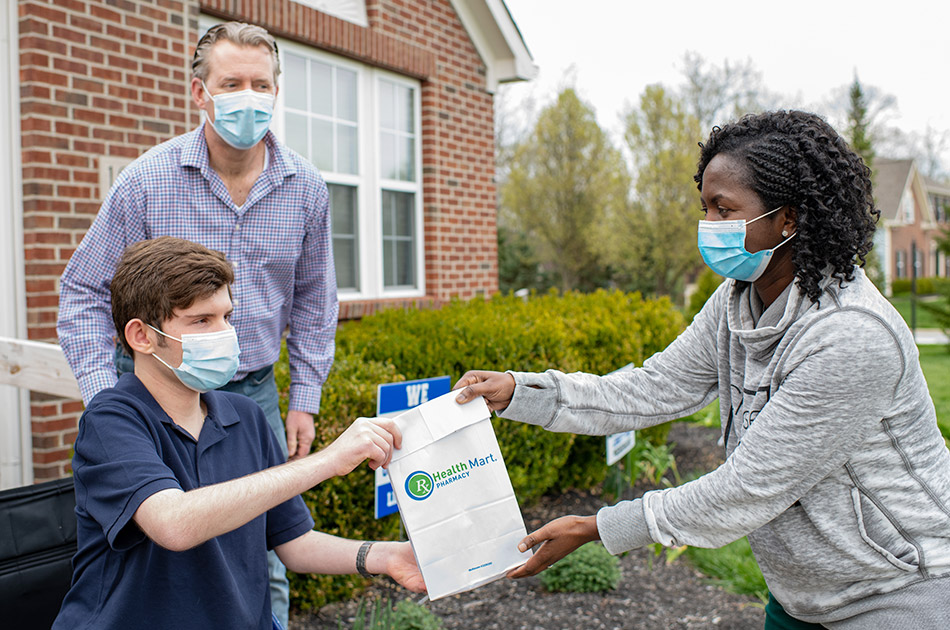
You can’t prescribe your way out of anything. I learned this growing up in Cameroon. I had a difficult childhood. We didn’t have much access to health care. I’ve had malaria 20, 30 times. I would take leftover medication my mom had from having malaria, cholera, typhoid. Then we moved closer to a hospital where I came in contact with nurses, physicians and pharmacists from America who came as volunteers. I was so inspired. So now, with all my training from Ohio State, I am able to help people with all my resources. It fills my heart. — As told to Ross Bishoff
Steve Haghiri
Registered nurse, Ross Heart Hospital cardiac electrophysiology lab
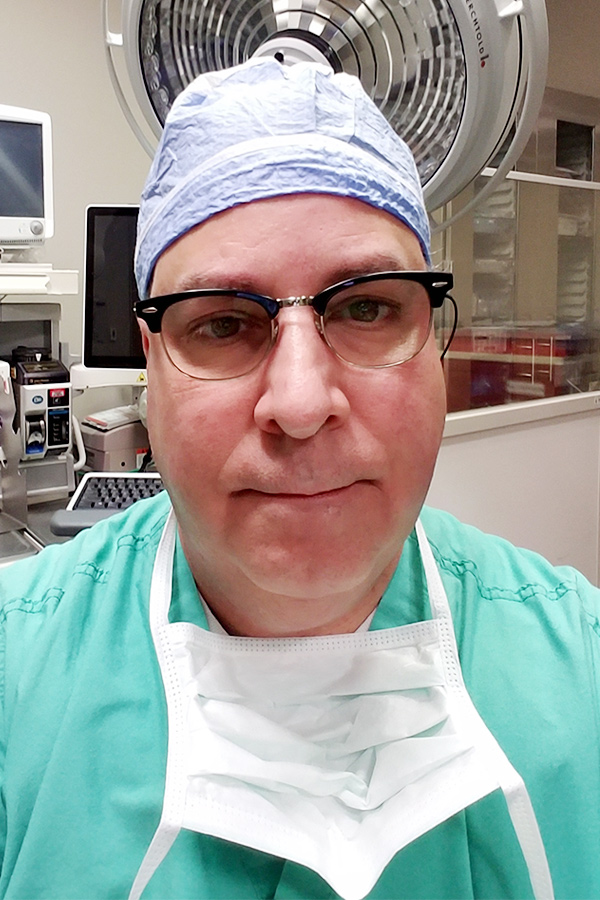
How did I end up collecting nasal swab samples for testing and diagnosis during a pandemic? That’s easy — I volunteered. A lot of people told me I was crazy to do so at my ripe age of 57. They said, “You’re an old man. You’re a good demographic for contracting COVID. Don’t go around this stuff.” But I wanted to battle. I’m an old-school nurse. The needs of the many outweigh the needs of the one or the few.
I’m managing risk, anxiety and job performance. Some days are better than others. I’m no hero. Save that reference for the comic books. This is what we do at The Ohio State University! This is who we are. We’re in service to the university and the community. It’s important.
The scope and magnitude of this pandemic is so big. In all my 35 years of nursing, I’ve never seen anything shake the entire country like this. Maybe 9/11. We’re in a real battle. We don’t have infinite resources to fight this thing.
Buckeyes don’t quit when it gets tough. Teamwork is part of our fabric. We have unity, a family feeling. I hope we are all making William Oxley Thompson proud now. I know Woody would approve. I pray my best is good enough. — As told to Todd Jones
Hiba Shamma ’13
Technician specialist and laboratory coordinator, Battelle
I’m not afraid of COVID-19, even though I know I should be. I’ve seen what it does to people. I was born in the U.S. but grew up in the Middle East. As Palestinians, we went through every day thinking we would die. I had classmates whose homes were bombed at night. They didn’t survive. I didn’t know that was scary. I just thought, “Yay, I’m alive.” Every day is a new day. That’s why I’m so happy all the time.
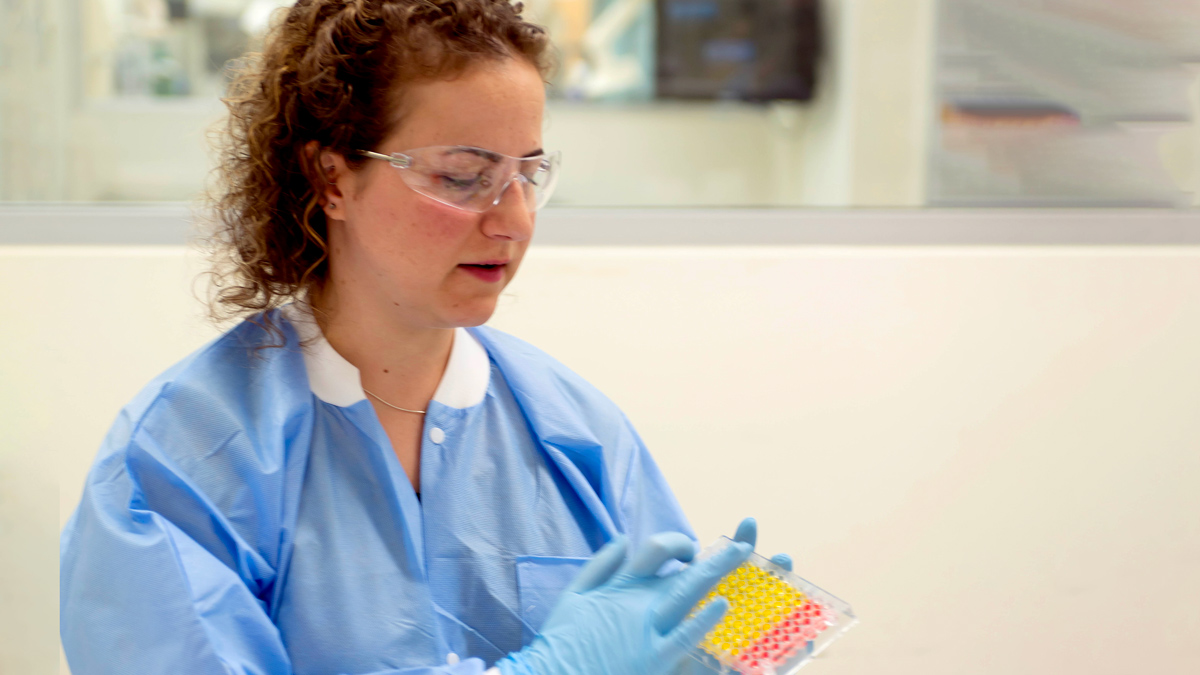
I thought, if I have the chance to make a difference, then I’ll do it — even if I risk my life. I volunteered to go to New York with other Battelle employees. We’re decontaminating N95 respirator and surgical masks so doctors and nurses can use them again. We’re working in four trailers on a Long Island parking lot. We report at 3 in the morning and our shift lasts until 3 p.m., seven days a week. All these nurses and doctors write their names on the masks we’re getting to make sure they get them back and no one else wears them. Seeing all these names makes me so sad.
I’m not superstitious, but some small, silly things have been happening, making me feel like, “This is a sign. I’m meant to be here.” — As told to Todd Jones
Aaron Westbrook
Founder and CEO of Form5 Prosthetics, third-year student, marketing major
Form5 Prosthetics has been growing immensely, so we reconstructed our board of directors going into 2020. We were all so excited for the future and all these events we had planned and then, boom, Coronageddon. Everything changed.
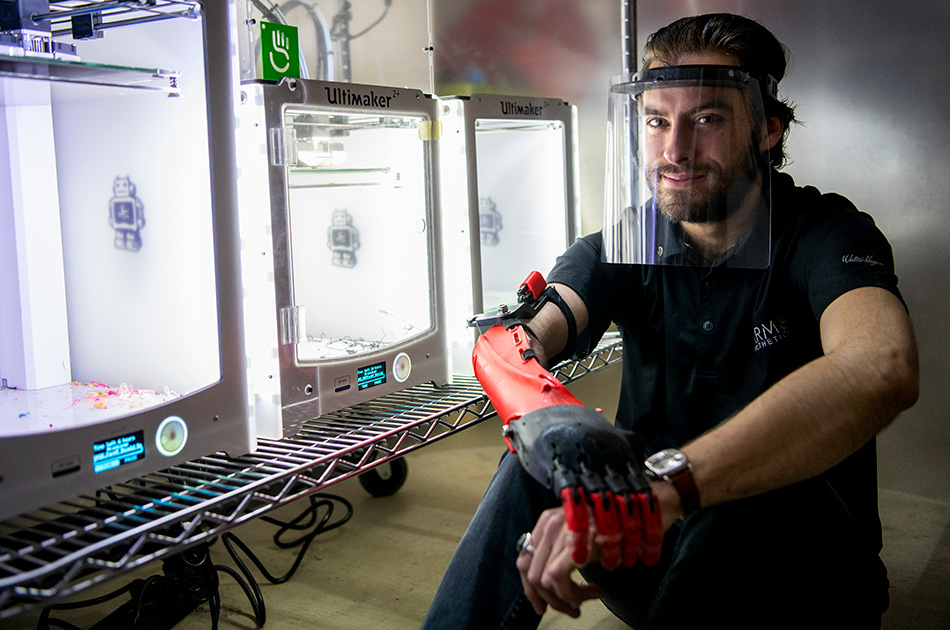
I saw that in Europe people with 3D printers, makers, were helping with PPE shortages by printing face shields for health care workers. I asked our engineers, “Is this possible?” And every single person said, “Yes, let’s do this.” Everyone was up ’til midnight each night, messaging me, texting me ideas, parts to print. We found open-source designs, modified them and developed our own based on feedback from doctors on our board. So we had created our own face shield designs. They’re reusable and adaptable. This all happened in, like, four days.
Our goal in the first six to eight weeks was to produce 10,000 face shields and mail them anywhere they’re needed. We’ve heard a lot from rural communities especially. We print them and get them out as fast as possible. We also sent out a call to makers who have capacity to print our shield to help us meet the orders. We’ve been targeting anyone who needs them, not just those on the frontlines. This is what we do. This is our mission: empowering people to interact with their world and their future. — As told to Ross Bishoff
Jessica Jolly ’13 MHA, ’14 MPH
Chief operating officer at SWLA Center for Health Services, Lake Charles, Louisiana
This clinic has been in Louisiana more than 41 years. About 60% to 70% of the 25,000 patients we serve are people of color, and we know that’s one of the groups that has really been impacted. Their COVID-19 mortality rates are unfortunately much higher because of chronic underlying health issues.
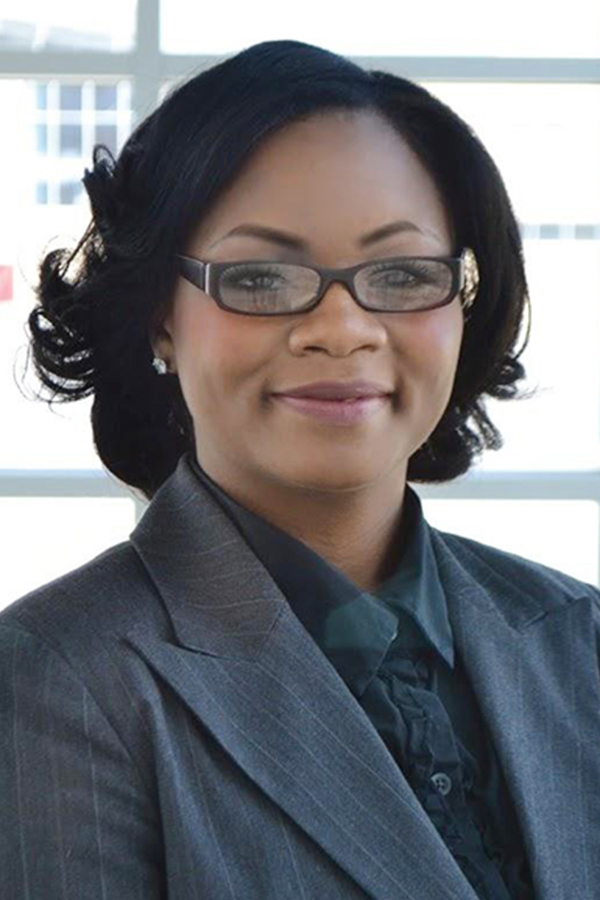
It has been tough, to be honest. One morning, I was talking with our director of nursing, and I just had a moment where I was overwhelmed with emotion. I started to tear up because I felt very upset that we were losing people unnecessarily. Personally, it is … it’s almost … it’s unbelievable. I guess I didn’t think I would ever witness something like this in my lifetime.
I’m so tired, but we’ve got to keep going. I pray daily, asking that we’ll have grace to get through all of this. I’m extremely honored to be able to serve, especially among vulnerable populations and communities. It feels like a calling. — As told to Todd Jones
Nick Linkenhoker ’10
Executive director, Worthington Resource Pantry, Worthington, Ohio
March 14 was our first day under our new distribution model. In those first 30 days, we saw a 76% increase in visits to the pantry. We had a 595% increase in new families over the same period last year. We’re serving a whole lot of new folks who never anticipated they would need a food pantry. They had good jobs, they were doing just fine and then all of sudden, everything just kind of stopped for them. January, February, we were pretty much steady, maybe even a little down from where we were the year before in number of visits, and then all of a sudden, just a huge increase. That’s unprecedented.
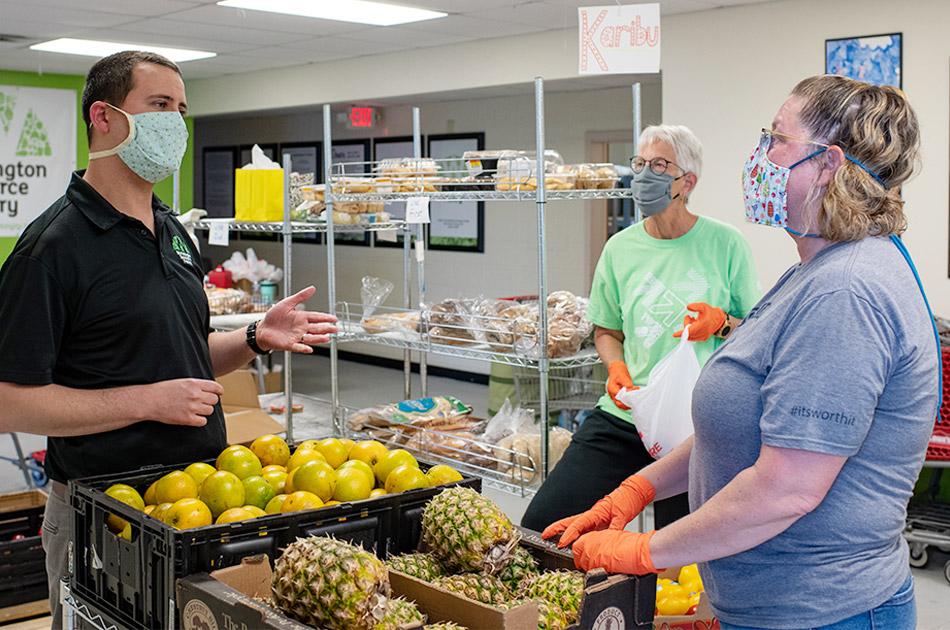
We’ve been a strong proponent of the choice model, where folks can come and shop with us like they would in a grocery store. We almost overnight had to change to a model where we had to pre-pack everything. Folks drive up, they don’t get out of their car; volunteers get it loaded up.
The people who are shopping with us here really are our neighbors. Their kids go to school with our kids. They’re sitting next to us in a church pew or they’re playing on the same soccer team. — As told to Jasmine Hilton
Jessica Huang
Leader of the Chinese American Student Association, third-year student majoring in industrial and systems engineering
For some international students, this is the equivalent of living in Australia or Europe. You’re far from home and your family’s probably not here. And you’re probably not fluent in the language. The Chinese American Student Association did a lot of connecting and matching people with temporary housing at first. A lot of people were worried about either being stuck here, or if they were working here, being sent back home and not being able to come back to their work.
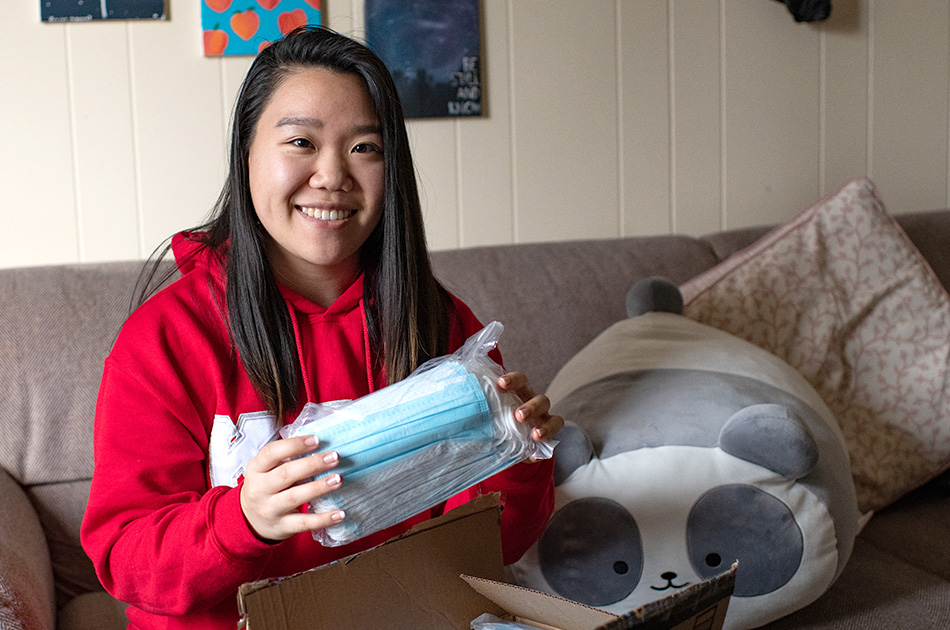
We’re working with the Midwest Chinese American Student Association and Chinese American organizations from other schools to raise money to buy masks and other PPE for hospitals and underserved areas. We’re also trying to start up a local version of that for places here in Ohio.
I’ve had a lot of positive, strong influences helping me through. We’re working on a bingo board for our members to kind of help keep their mind off things. Something fun and light. That, and raising money for masks and other PPE. Having that to focus on outside of things like Zoom has been very helpful. It gets me up and functioning throughout the day.
I think next year’s gonna be really interesting. I think it’ll be a cool opportunity, maybe for new collaborations or events to focus on the issues that have been brought up. — As told to Jasmine Hilton
Gabriel Lockhart ’09, ’13 MD
Pulmonologist at National Jewish Health in Denver who volunteered at Mount Sinai Medical Center in New York City
When I arrived in New York, there was an air of tension. Every single person there was wearing a mask. People were trying to maintain distance as much as possible, which is really hard to do in that city.
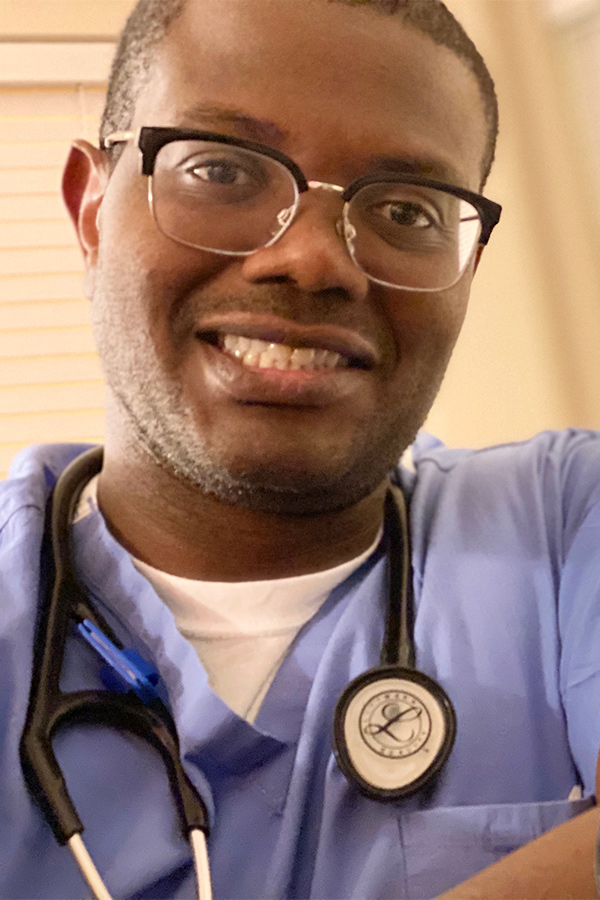
At the hospital, it was a well-executed system. But there was still a lot of palpable stress among the staff. I usually worked about 12 to 13 hours a day, and it was physically, mentally and emotionally exhausting. This is a disease course I’ve never seen before. I was racking my brain to figure out how these patients were reacting the way they were. One unfortunate memory involved two patients who were on ventilators. I thought we were approaching a test to see if they could breathe on their own. They developed heart failure and they died suddenly. Seeing patients dying without their loved ones was a horrible experience that I’ll never forget.
I carry good memories as well. I was so impressed by the resiliency of the team I worked with. They stood strong against what seemed like an insurmountable force. The way that firefighters run to a fire, this was my role to play. This is my specialty, and I’m young and healthy. This was absolutely something that I needed to do. — As told to Joshua Wright
Twinkle Schottke ’93 MA
Program director, Moms2B, a comprehensive prenatal and first-year-of-life program supported by Ohio State
It was really hard to cancel our in-person sessions because that’s our lives. When I get up in the morning, I look forward to those sessions. How many families will come? What babies will we see? But we had to keep going. I mean, come on, you have to or our moms don’t have healthy babies. We’re going strong, taking our program from in-person to online. Oh my gosh, we’ve worked so hard to do that and to maintain those relationships.
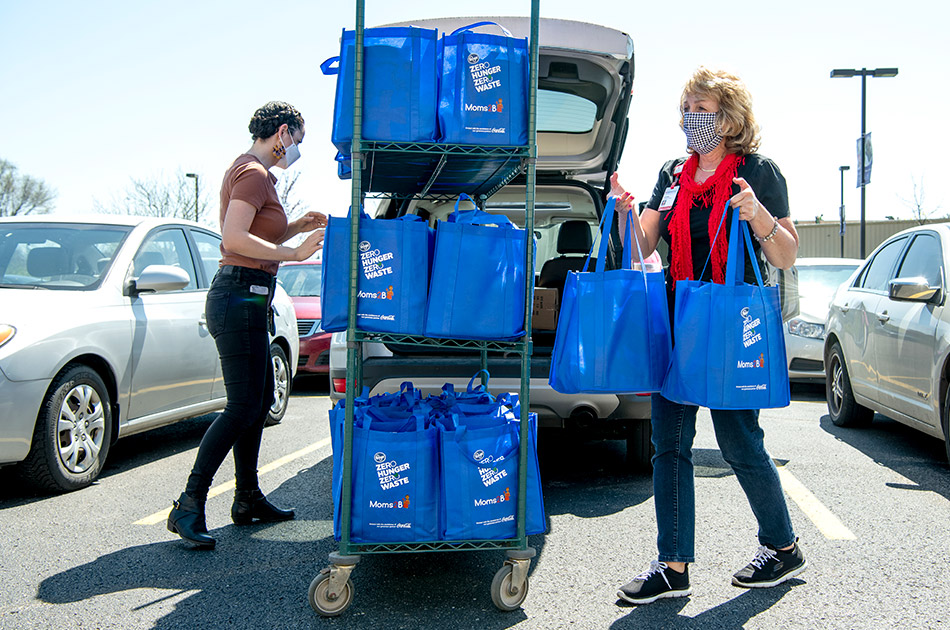
For a lot of our moms, this is no different than what they experience on a regular basis. They often don’t have food. They are often isolated in their homes. What they have appreciated is we’re delivering meals and care packages to them every week. A mom called and said, “A highway patrolman dropped off my food. When I saw him, I got scared, but he was smiling and getting all this stuff out of his car.” He told her, “We’re helping out.” That made me cry. … I felt that in my heart.
People bring things to my porch every week. We get calls. What do you need? What can we do to help? Out of the goodness of their hearts, people in our community are jumping in to help our moms. — As told to Ross Bishoff
